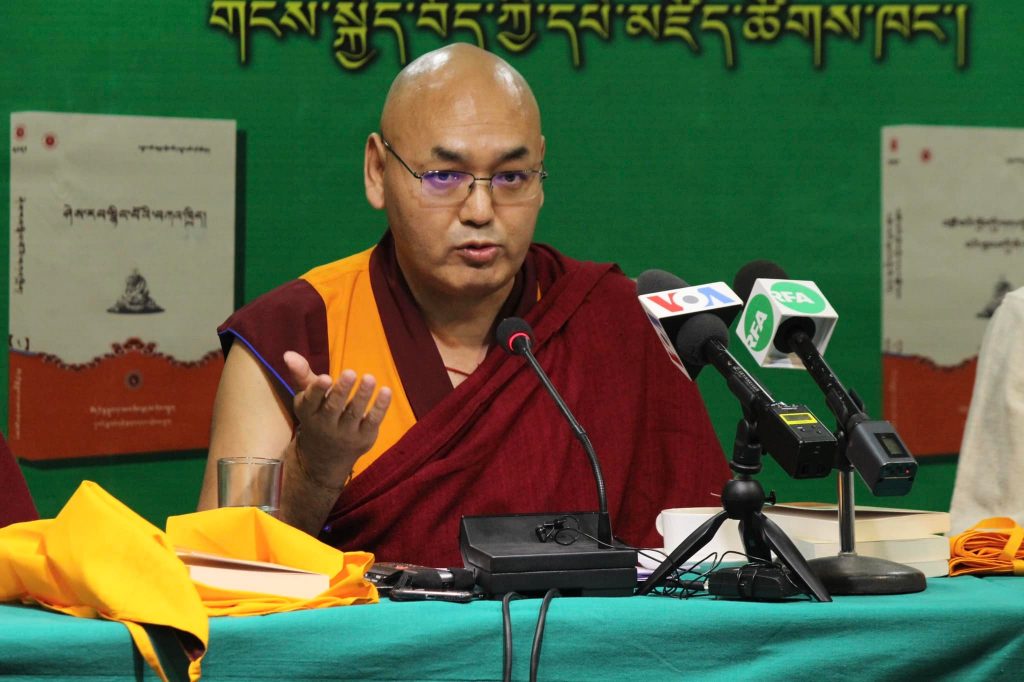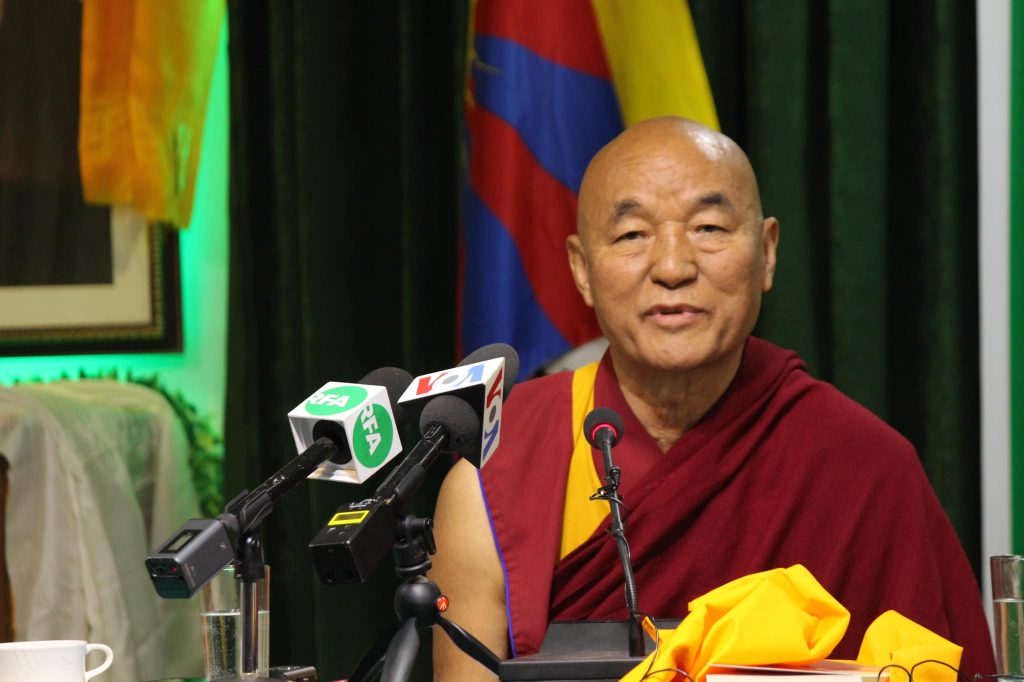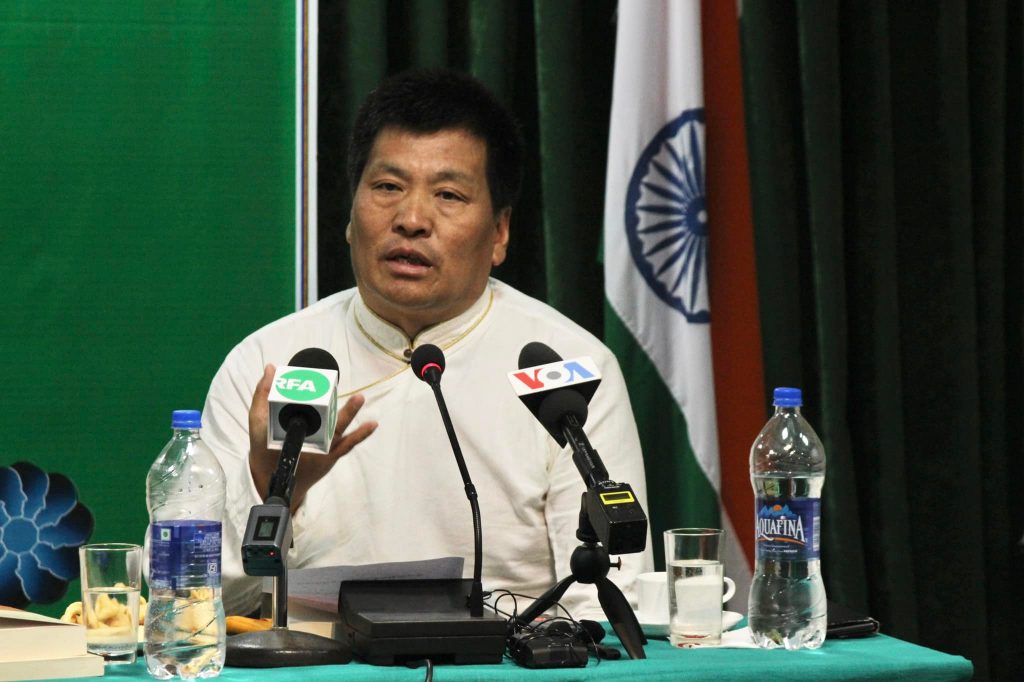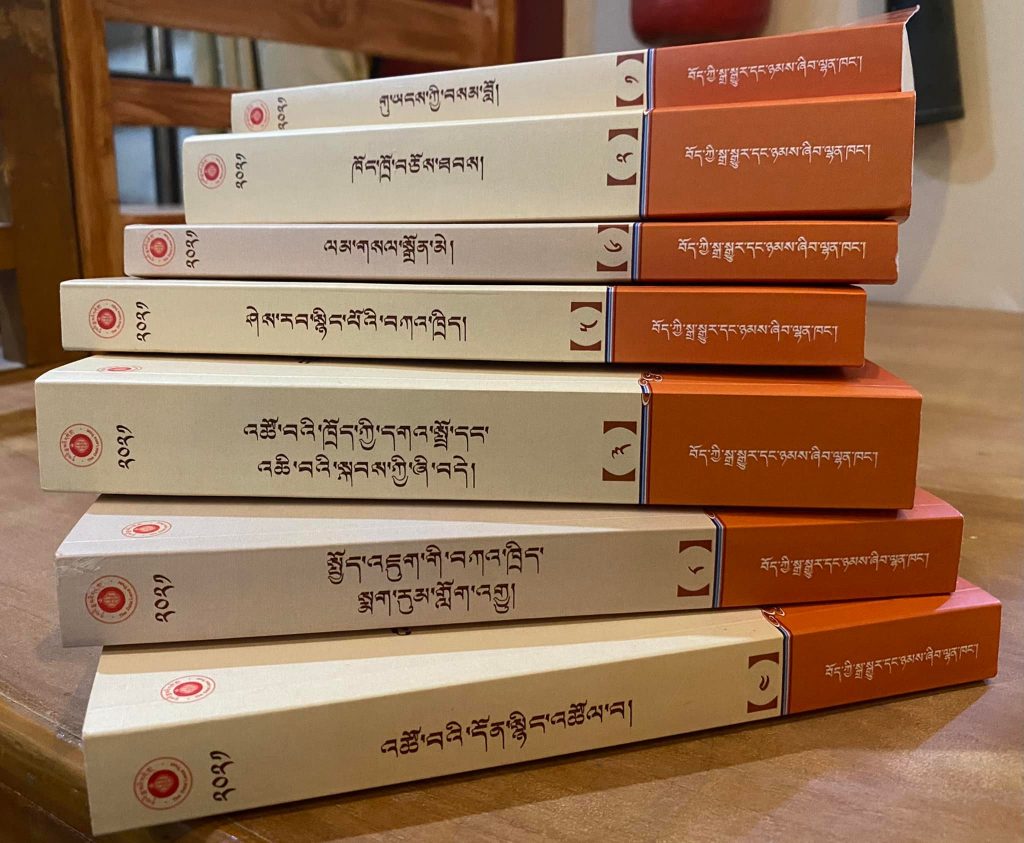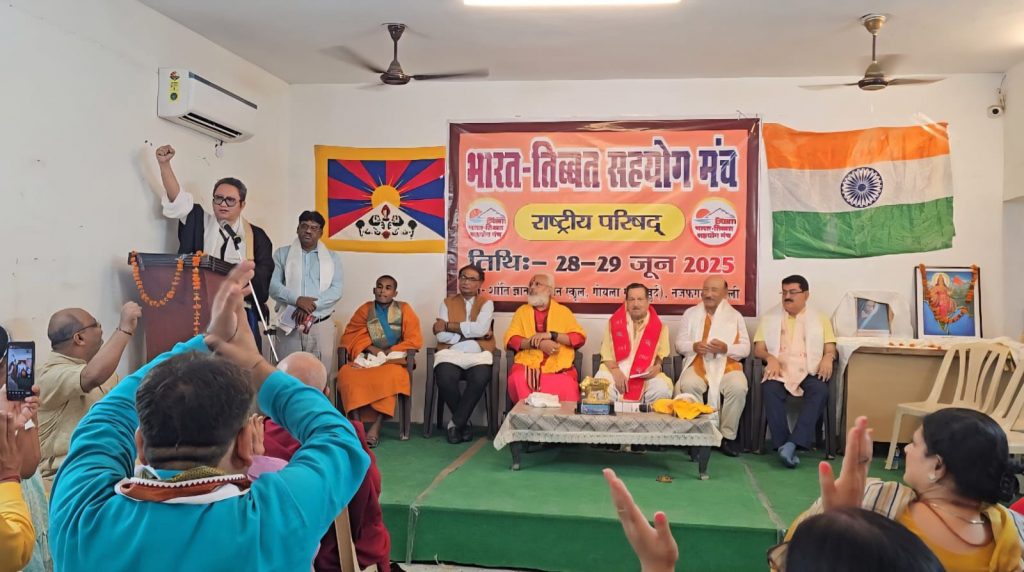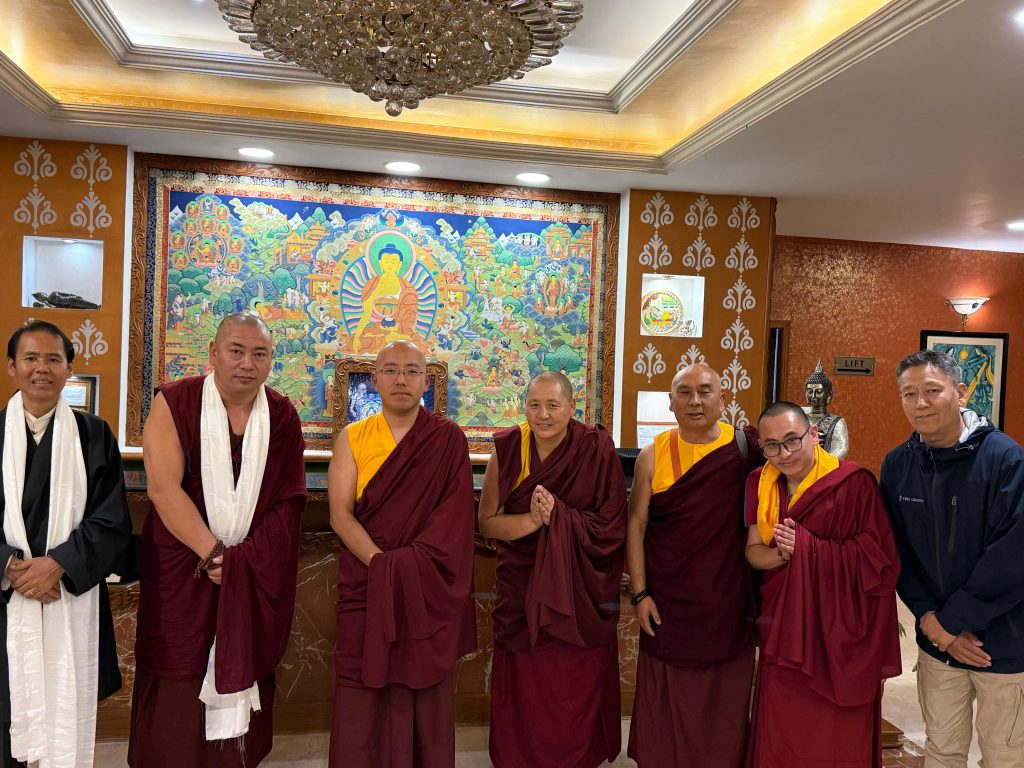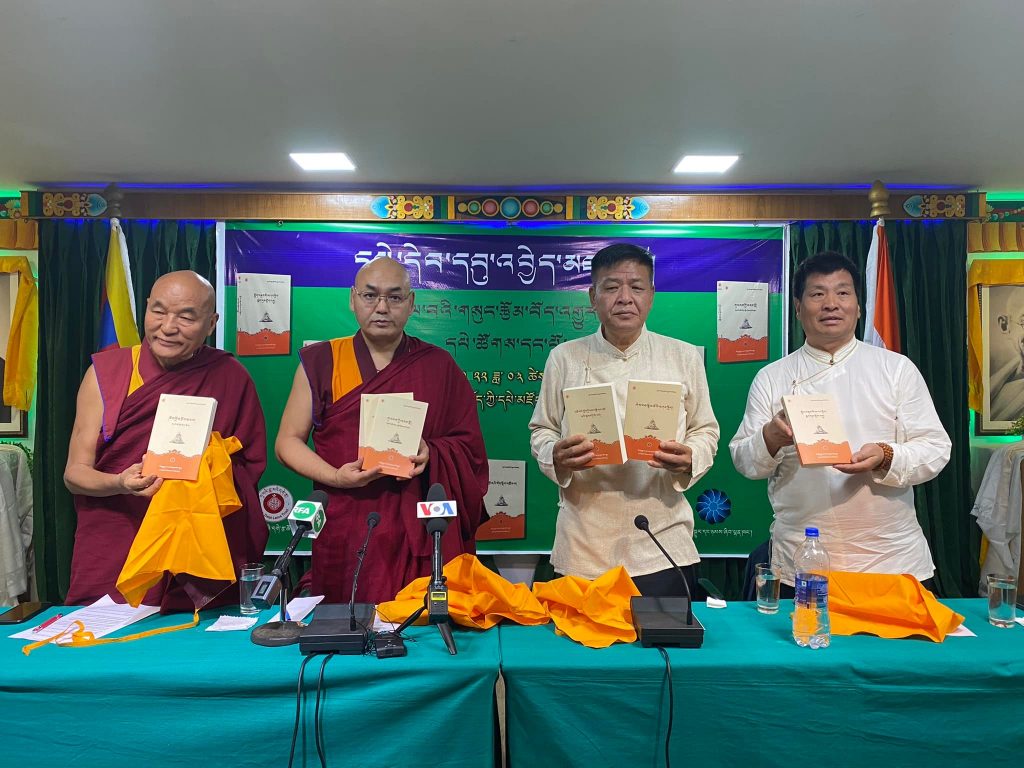
Dharamsala: Speaker Khenpo Sonam Tenphel of the 17th Tibetan Parliament-in-Exile and Sikyong Penpa Tsering of the Central Tibetan Administration along with Tibetan Parliamentarians Ven Thubten Wangchen and Thupten Gyatso from Europe launched seven books translated by the Tibetan Translation & Research Institute on 28th March 2022 at the Library of Tibetan Works and Archives (Ltwa). The released books are translated from English books of His Holiness the Dalai Lama with the help from the Dalai Lama Trust.
During the books’ launch, the Speaker spoke on the need of translating English books of His Holiness the Dalai Lama into the Tibetan language and also the need of translating them into furthermore languages to reach more people and to bring benefit to a wider audience from the insights of these books. Putting emphasis on the importance of developing book-reading habits among Tibetans and especially among children, the Speaker advised everyone irrespective of their age or nationality to read more books of His Holiness the Dalai Lama for their own benefit and wellbeing. As the root causes of suffering are believed to be attachment, aggression, and ignorance as per Buddhism, which can be completely eradicated with bodhicitta and emptiness, the books of His Holiness the Dalai Lama with its sheer simplicity are the foundation for understanding such profound concepts of Buddhism.
Speaking on the importance of reading the books of His Holiness the Dalai Lama which are the refection of His Holiness’s benevolent perception and aspiration, the Speaker spoke on the four commitments of His Holiness the Dalai Lama. Starting with the first commitment- as a human being, His Holiness’s wish to encourage other humans to be happy, emphasizing the fact that everyone desires happiness and despises suffering irrespective of the differences in one’s religious belief. Secondly, as a Buddhist monk, His Holiness is committed to encouraging harmony among the world’s religious traditions on the basis that despite having philosophical differences all the religions are based on compassion. Thirdly, as a Tibetan and the supreme leader of Tibet, His Holiness is committed to protecting Tibetans’ distinct language, culture, and religion and at the same time, He is committed to resolving the issue of Tibet. Fourthly, as a follower of the ancient Indian knowledge of the Nalanda tradition of Buddhism and living in India for the last many decades, His Holiness the Dalai Lama is committed to reviving ancient Indian knowledge.
